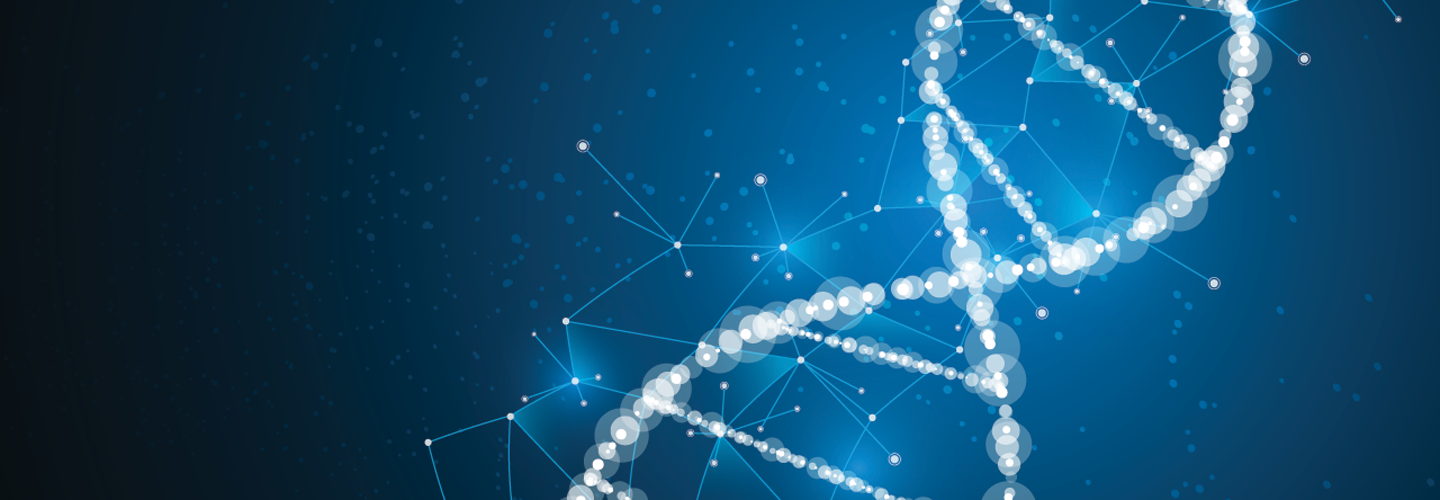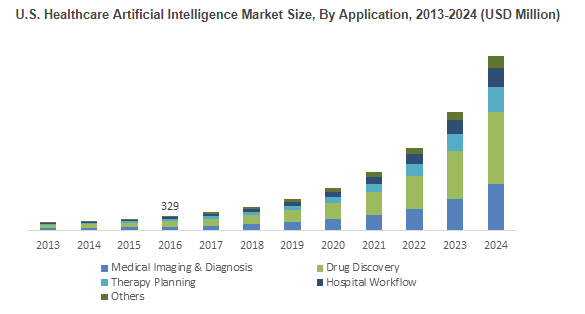
BIOtech Now
Jeremy Isenberg

Emerging technologies are disrupting the healthcare system as we know it—none more so than artificial intelligence (AI), which has a wide range of applications in the healthcare industry, ranging from medical imaging & diagnosis to therapy planning to system improvement to drug discovery.
And the healthcare AI market is booming. Recognizing the strength of this market, the BIO Investor Forum will explore its opportunities and challenges during the annual conference in San Francisco, October 17-18. Experts in the field will explore how real-world evidence can improve clinical trials, examine “digiceuticals” as a new class of FDA-approved therapeutics, and discuss how AI can improve drug development in general.
The AI Market
Recent analysis of the healthcare AI market illustrates that the market is about to take off like a rocket. A report by Global Market Insights forecasts that the US healthcare AI market will exceed $10 billion by 2024. Consequently, capital is rapidly moving to fund and develop products and systems in the AI space.
Global markets are investing in AI abroad as well. Worldwide, nearly 80 healthcare AI startups raised their first equity rounds in 2017. Chinese investors alone moved over $10 billion into the larger AI market in 2017, and some European firms have expressed long-term objectives for healthcare AI with the expectation to grow above $800 million by 2024. Chinese AI start-ups are actually attracting more funding than US AI start-ups. In 2017, Chinese companies received 48% of global AI funding compared to 38% in the US.
However, the US has established itself as the most proficient market for healthcare AI. Leading venture capitalist Jim Breyer explained to CNBC this is the case because, “US companies simply have better data, they understand how to analyze that data, and if we’re thinking about big breakthroughs, in improving patient outcome for instance in cancer, worldwide, the US companies have, currently, a very significant lead versus the Chinese companies.”
AI’s Role in Healthcare
AI’s computing power enhances the capacity, speed and accuracy of data analytics. With the growing volume of data in healthcare, AI can use machine learning to mine large amounts of data points from insurance claims information, comorbidities, diagnostics, procedures and prescription history to identify factors that help predict patient outcomes. AI is also able to interpret medical imaging from CT scans and MRI scans that enhance the detection of diseases.
AI can augment the patient experience and aid physicians in more accurately diagnosing diseases. The vision for AI in this context is that, after taking a panel of tests, the technology would read the patient’s complete EHR to predict the totality of a patient’s health risks and the likelihood of responding to a particular therapy. This could have enormous benefits for the 30 million patients living in with rare diseases as it takes 4.8 years on average for them to receive an accurate diagnosis.
AI Transforms Drug Discovery
Perhaps the most exciting aspect of AI is that it is accelerating the use of big data to forge a new of era of drug discovery where large datasets are scrutinized to find the new generation of breakthrough treatments.
AI can mine the data to help us learn the origins of diseases and better identify the genetic basis of a variety of diseases. AI uses machine learning and deep learning to sift through datasets to identify genetic biomarkers that indicate whether a patient will be able to respond positively to a potential treatment. Biopharmaceutical companies may then utilize the findings to target the biomarker with a drug treatment.
One of the richest datasets for AI is a genetic database. Across therapeutic areas, biopharmaceutical companies are making genetic databases a focus of their research and development processes. Many of these databases are being developed by direct-to-consumer (DTC) genetic testing companies.
Recently, the industry has seen a rise in partnerships between DTC genetic testing companies and biopharmaceutical companies to collaborate on drug discovery. For instance, GSK recently announced a collaboration with 23andMe that involves GSK taking an equity stake in 23andMe in exchange for access to the proprietary genetic data.
The partnership will combine 23andMe’s data expertise with GSK’s clinical development expertise to utilize the genetic data to discover novel drug targets for treating diseases. These types of partnerships may have a significant impact on some of our most complex health challenges.
Be Part of the Conversation about Healthcare AI
On October 17th and 18th, an international crowd of biotech investors will gather at BIO’s annual Investor Forum in San Francisco to discuss these issues. The conference caters to emerging and established companies to discuss the cutting-edge technologies that are driving the biotechnology industry.
BIF will feature experts working at the intersection of information technology, therapy delivery, and new drug development, who can show the exponential power of machine learning and other artificial intelligence approaches to turn data into medicine.
Powered by WPeMatico


